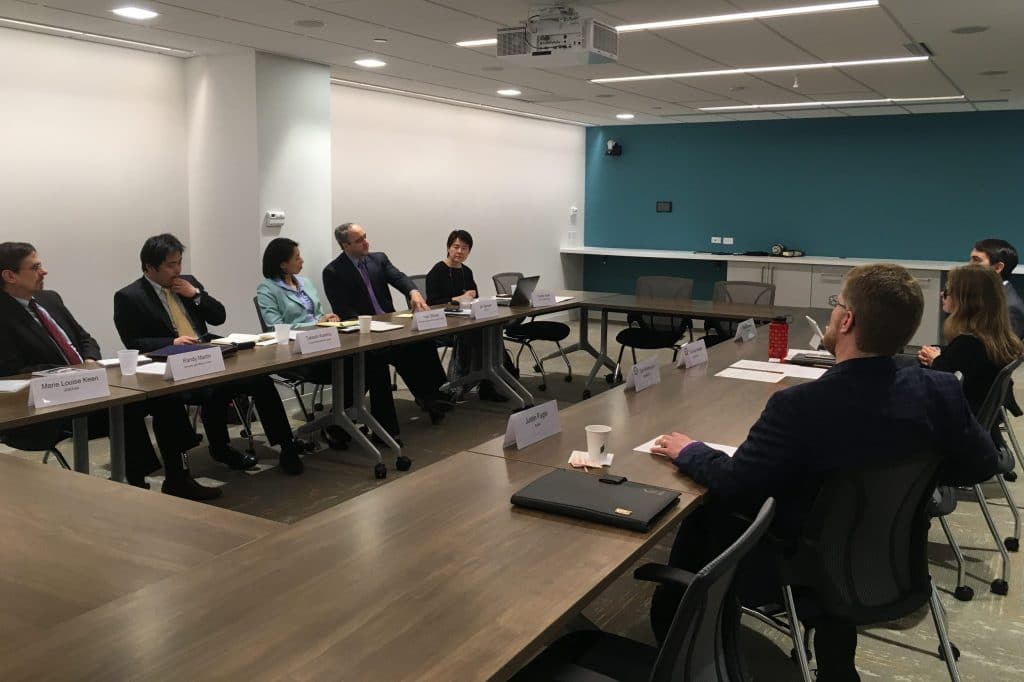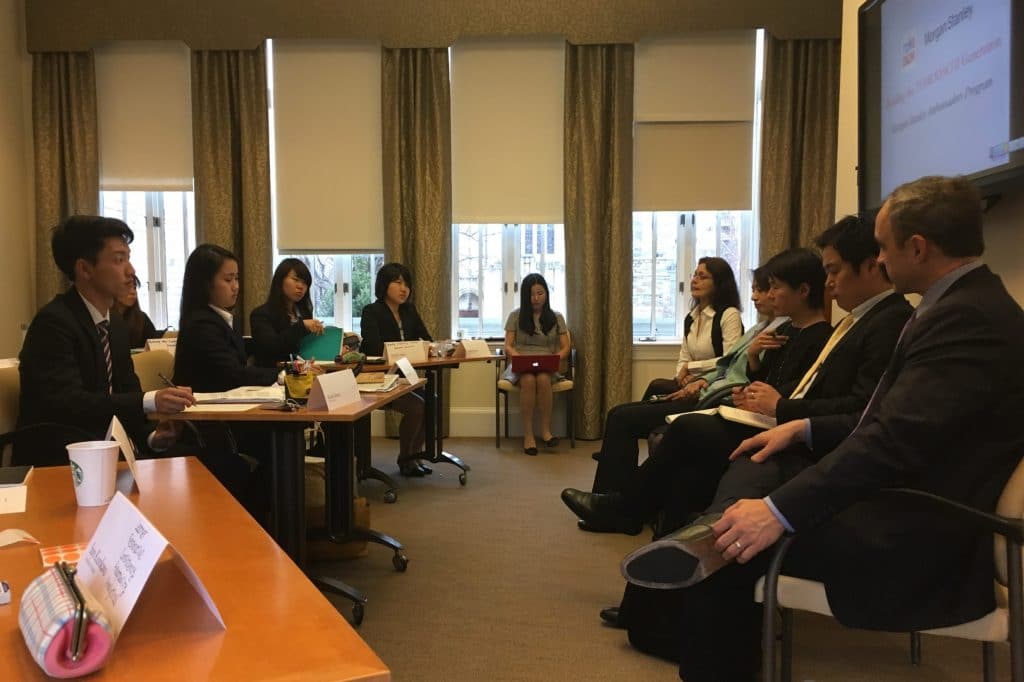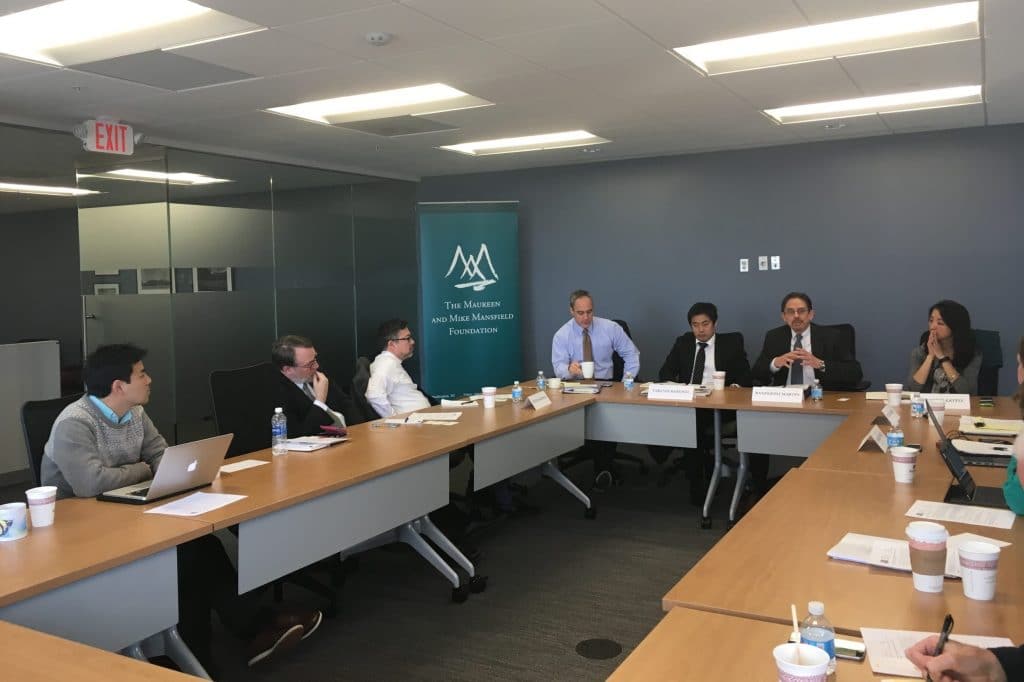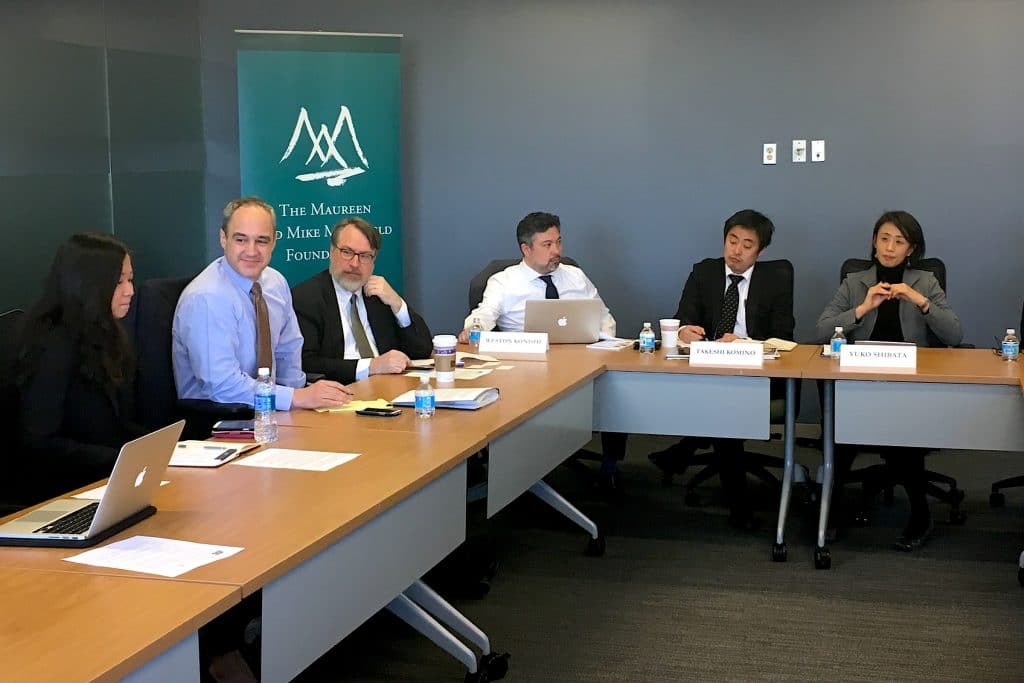As part of a project on NGOs as Strategic Partners: Strengthening US-Japan Cooperation on Development and Humanitarian Assistance, JCIE brought a team of executives from some of Japan’s leading NGOs in the field of development and humanitarian assistance to the United States as part of a study of what is needed to strengthen the institutional capacity of Japan’s NGO sector and advance US-Japan development cooperation. The team met with NGO leaders, senior government officials, and policy experts to explore (1) how American NGOs partner with government agencies on international development and humanitarian affairs, (2) lessons from the ways in which American NGOs developed the institutional capacity to be “strategic partners’ for the government and others, and (3) measures to encourage more meaningful US-Japan partnerships that involve NGOs.
The delegation’s meetings included representatives from the following:
- Asia Foundation
- Embassy of Japan
- InterAction
- International Medical Corps
- Plan International USA
- UN Foundation
- USAID Office of Foreign Disaster Assistance
- US Institute of Peace
- US Senate Appropriations Subcommittee on State, Foreign Operations, and Related Programs
- US State Department Bureau of Population, Refugees, and Migration
- World Vision
The project also featured a roundtable co-organized with the Maureen and Mike Mansfield Foundation, held on March 3 on “The Growing Role of Japan’s NGOs & the Implications for US-Japan Relations.” Roughly 20 participants joined the study team to discuss the ways in which Japan’s NGOs are increasingly contributing to development and humanitarian responses. Speakers noted that one silver lining of the tragic 3/11 disaster in Japan has been that Japanese NGOs have gained greater recognition as trusted responders in times of crises. However, they still struggle due to a lack of institutional capacity and resources, and the mismatch in institutional capacity and size between Japanese NGOs (usually having just one or two dozen staff) and potential US partners (often with hundreds or thousands of staff) is an ongoing dilemma in forging successful partnerships for humanitarian and disaster relief. Despite the challenges, participants pointed to several highly successful collaborations between US and Japanese NGOs on development projects and stressed there is great potential for more cooperation in Southeast Asia, Africa, and elsewhere.
Study Team
YUMIKO HORIE, Advocacy Manager, Save the Children Japan
TAKESHI KOMINO, General Secretary, Church World Service Japan
YUKO SHIBATA, General Manager, Overseas Programme Division, Japan Platform
JAMES GANNON, Executive Director, JCIE/USA [Secretariat]
MARIE LOUISE KEEN, Program Assistant, JCIE/USA [Secretariat]






